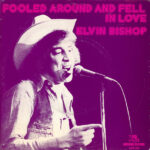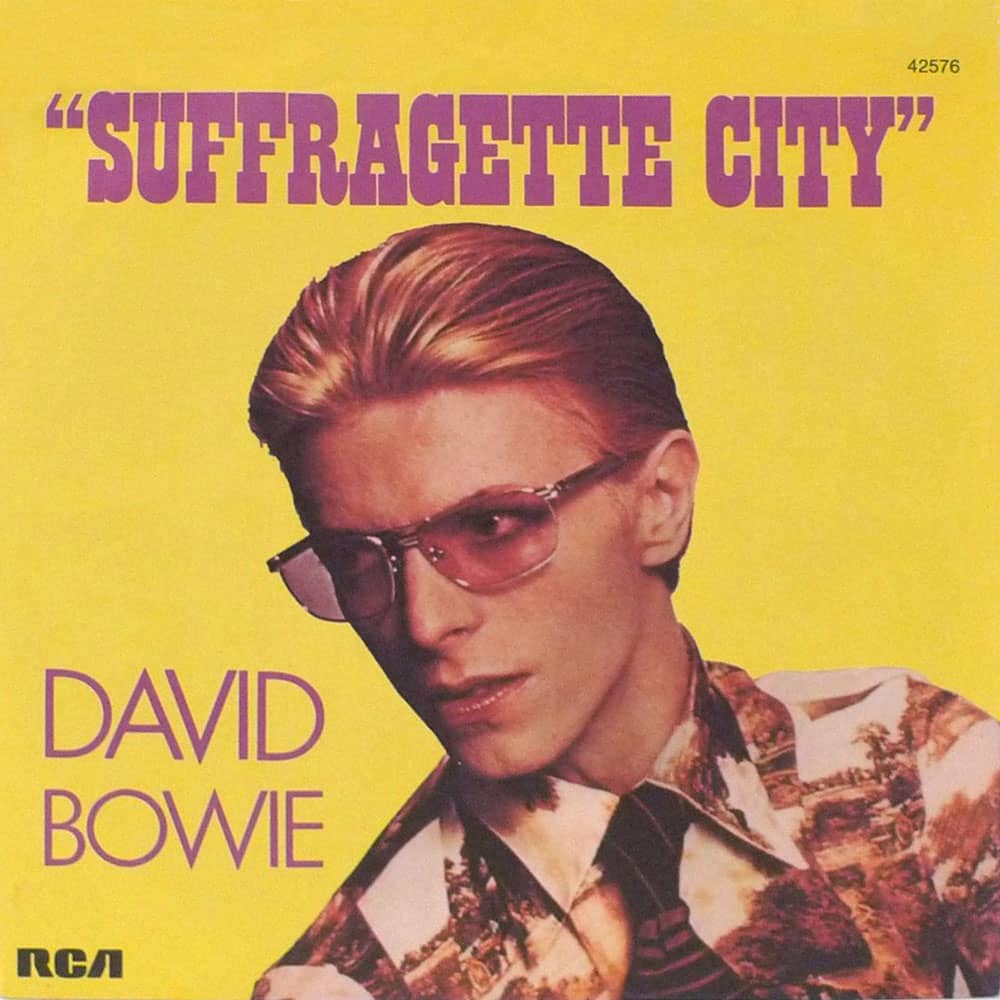 There are songs that sound like they were written by fate itself—songs that drift into existence as if they’d been waiting patiently for the right moment to emerge from the ether. “Fooled Around and Fell in Love,” released by Elvin Bishop in 1975, is one of those rare, timeless miracles. It’s not just a soft-rock classic; it’s a confession, a revelation, and a love story wrapped up in a silky falsetto. Despite Bishop being the credited artist, the song’s soul comes from the voice of Mickey Thomas, whose performance lifts it from a solid blues-rock tune into something bordering on divine.
There are songs that sound like they were written by fate itself—songs that drift into existence as if they’d been waiting patiently for the right moment to emerge from the ether. “Fooled Around and Fell in Love,” released by Elvin Bishop in 1975, is one of those rare, timeless miracles. It’s not just a soft-rock classic; it’s a confession, a revelation, and a love story wrapped up in a silky falsetto. Despite Bishop being the credited artist, the song’s soul comes from the voice of Mickey Thomas, whose performance lifts it from a solid blues-rock tune into something bordering on divine.
At its core, “Fooled Around and Fell in Love” isn’t just a love song—it’s a love awakening. It’s about a man who spent years enjoying the fleeting pleasures of romance only to be blindsided by something real, something enduring. There’s a kind of wide-eyed vulnerability in the lyrics, the sound of a man admitting defeat to a power greater than himself. The music, shimmering with 1970s studio polish, swirls around that admission like sunlight glinting off a glass of bourbon.
This is the kind of song that you can’t listen to casually. It invites you in, pours you a drink, and tells you a story about how love, no matter how much you resist, eventually finds its way under your skin.
The Making of a Classic
Elvin Bishop wasn’t exactly known for tender ballads. A veteran of the Paul Butterfield Blues Band, Bishop’s solo work leaned heavily toward barroom blues and southern rock. But when he recorded Struttin’ My Stuff in 1975, something special happened. Bishop wrote “Fooled Around and Fell in Love” based on his own life—he was, by his own account, “a confirmed bachelor” who had finally met a woman who changed everything.
Yet Bishop himself knew he wasn’t the right man to sing it. His rough-edged, down-home voice didn’t match the emotional delicacy of the song. So, he handed the mic to his backup vocalist, a then-unknown Mickey Thomas. The decision proved to be pure lightning in a bottle.
Thomas’s voice—high, clear, and soulful—turned Bishop’s personal reflection into a universal confession. The song became an instant radio staple, reaching No. 3 on the Billboard Hot 100 and embedding itself in the fabric of soft rock history. Ironically, for Bishop, it became both a blessing and a curse. Despite a long and respected career, no song of his ever again came close to the success of “Fooled Around and Fell in Love.”
The Voice That Made It Immortal
Let’s talk about Mickey Thomas. Before his later fame fronting Jefferson Starship, Thomas was a relative unknown. Yet from the opening falsetto of “Fooled Around and Fell in Love,” he sings like a man who’s just discovered not only love but his own voice in the process. His delivery is smooth but not sterile, tender but not fragile. He hits every note with both precision and emotion—an elusive combination that gives the song its staying power.
What’s remarkable is how believable he sounds. The lyrics are simple:
“I must have been through about a million girls / I’d love ’em and I’d leave ’em alone.”
But the way Thomas sings them, there’s no arrogance—only a kind of humbled reflection. When he gets to the chorus—
“I fooled around and fell in love”—
you can almost hear the smile behind his voice, the disbelief that someone so unattached could suddenly be undone.
It’s not overproduced, either. The song’s strength lies in its restraint. The arrangement gives Thomas room to breathe, to let every syllable glide. It’s no wonder this performance became a defining moment for him, setting the stage for a career that would later see him soar through arena anthems like “Jane” and “We Built This City.” But this—this was where his voice first touched something eternal.
The Sound of Soft-Rock Perfection
“Fooled Around and Fell in Love” is a quintessential example of what made mid-70s production so irresistible. There’s a smoothness, a kind of lush warmth that makes it feel like the audio equivalent of a California sunset.
The track opens with a clean, echoing guitar line—a tone that feels like it could only exist on vinyl. The rhythm section is tight but unintrusive, with drummer Donny Baldwin giving just enough motion to keep things from drifting into balladry sludge. The bassline subtly walks beneath the verses, carrying the melody without demanding attention.
But it’s the guitar solo—Elvin Bishop’s moment in the spotlight—that truly seals it. He plays with a kind of easy confidence, bending notes with bluesy sweetness rather than technical flash. You can almost hear him smiling through the strings. The solo doesn’t shout; it sighs. It’s as if Bishop himself is saying, “Yeah, I fooled around too—but I get it now.”
The song’s production is full but never crowded. It’s the kind of sonic space where everything feels perfectly placed, from the backup harmonies to the reverb that wraps around Thomas’s vocal like a soft blanket.
A Song for the Eternal Romantics
What makes “Fooled Around and Fell in Love” so enduring isn’t just its craftsmanship—it’s its honesty. Love songs are a dime a dozen, but very few capture the feeling of reluctant surrender the way this one does. It’s the sound of someone who thought they were immune suddenly realizing they’re not.
There’s also something timelessly relatable about the story it tells. Everyone knows someone like the narrator—the friend who plays the field, swears off commitment, and then one day gets hit like a freight train by something real. It’s the kind of universal human moment that transcends trends, genres, and generations.
And maybe that’s why this song continues to pop up in movies, TV shows, and even modern playlists. Whether it’s blaring out of a car radio in Boogie Nights, underscoring a tender moment in Guardians of the Galaxy, or playing quietly in a wedding reception hall, it fits. It carries an emotional truth that feels evergreen.
The Emotional Core
The beauty of “Fooled Around and Fell in Love” lies in its juxtaposition. It’s a confession from someone who’s lived the wild life, paired with music that’s utterly soft, romantic, and sincere. That combination creates a kind of emotional balance—a realism that keeps it from tipping into saccharine territory.
The lyrics themselves aren’t verbose or poetic. They’re conversational, almost plainspoken. But that simplicity is the secret weapon. When Thomas sings,
“Free on my own, that’s the way I used to be / But since I met you, baby, love’s got a hold on me,”
you believe him completely.
There’s no irony here, no self-protective smirk. It’s an open-hearted admission, the kind that only comes from someone who’s finally tired of pretending.
It’s also deeply human. Falling in love can be terrifying precisely because it demands surrender. You can almost sense that mix of wonder and vulnerability pulsing beneath every note. The narrator isn’t proclaiming victory—he’s confessing defeat, and he’s happy about it.
Cultural Staying Power
What’s remarkable about “Fooled Around and Fell in Love” is how it keeps reappearing across decades, always finding new ears and hearts. Its inclusion in Guardians of the Galaxy in 2014 introduced it to an entirely new generation, many of whom had never heard of Elvin Bishop. Suddenly, the song was everywhere again—streaming charts, wedding playlists, viral TikToks.
Part of that staying power comes from its timeless sound, but part of it is emotional resonance. In an era where so much music is polished to perfection or ironic in tone, “Fooled Around and Fell in Love” feels real. It doesn’t apologize for being tender. It doesn’t wink at the audience. It just exists as a snapshot of emotional truth, and that’s rare.
Even artists across genres—from country to pop to indie rock—have cited it as an influence. It’s the kind of track that transcends labels, landing comfortably between blues, soul, and soft rock. You can hear its DNA in countless love songs that followed, from Steve Perry’s “Oh Sherrie” to John Mayer’s “Gravity.”
The Dual Legacy
For Elvin Bishop, the song remains both his most famous and most atypical work. While he continued touring and recording blues records with consistent success, nothing ever eclipsed this single moment of pop perfection. And yet, he’s always spoken of it with pride. He once said, “I knew I couldn’t sing it right, but I knew it was a good song. Mickey just took it to another level.”
For Mickey Thomas, it was the launchpad of a lifetime. His voice became one of the defining sounds of late-70s and 80s rock, but “Fooled Around and Fell in Love” was where that journey began. The performance is still considered one of the greatest one-off vocal showcases in rock history—a Cinderella moment for a singer who didn’t even have his own record deal at the time.
The Final Word
“Fooled Around and Fell in Love” isn’t just a song—it’s a mood, a confession, and a snapshot of the moment when cool detachment gives way to something beautifully out of control. It’s that unexpected lightning strike of affection that turns a lifelong flirt into a believer.
Nearly 50 years after its release, it still feels fresh, like love itself. There’s no dated slang, no overblown production trick anchoring it to the 1970s. Just pure emotion, a clean groove, and a voice that sounds like it’s glowing from the inside.
When you strip away all the nostalgia, what’s left is a simple truth: love, no matter how we try to avoid it, always finds a way in. Elvin Bishop and Mickey Thomas captured that moment of surrender perfectly.
So the next time you hear that shimmering intro and those words—“I must have been through about a million girls…”—you already know what’s coming. You smile, maybe nod a little, because you’ve been there too.
We all fool around.
We all fall in love.
And that’s why this song will never fade.



